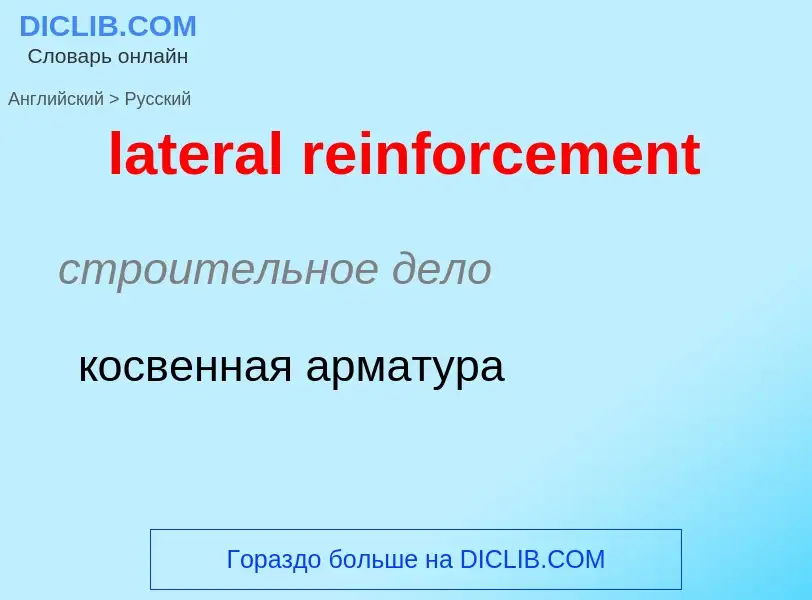Перевод и анализ слов искусственным интеллектом ChatGPT
На этой странице Вы можете получить подробный анализ слова или словосочетания, произведенный с помощью лучшей на сегодняшний день технологии искусственного интеллекта:
- как употребляется слово
- частота употребления
- используется оно чаще в устной или письменной речи
- варианты перевода слова
- примеры употребления (несколько фраз с переводом)
- этимология
lateral reinforcement - перевод на русский
строительное дело
косвенная арматура
общая лексика
негативное подкрепление
медицина
отрицательное подкрепление
строительное дело
рабочая арматура, воспринимающая усилия от отрицательных изгибающих моментов (в зоне промежуточных опор)
общая лексика
арматурный
армирующий
упрочняющий
усиление
усиливающий
строительное дело
армирование (бетона)
усиление (конструкций)
арматура
[ri:in'fɔ:smənt]
общая лексика
подкрепление
усиление
арматура
армирование
армировка
укрепление
упрочнение
строительное дело
элемент жесткости
арматура (железобетона)
армирование (строительных конструкций)
существительное
общая лексика
усиление
укрепление
армирование
военное дело
подкрепление
пополнение
строительное дело
арматура
специальный термин
закрепление (условного рефлекса, навыка; особ. системой поощрений)
система поощрений (особ. подопытного животного)
медицина
подкрепляющий раздражитель
Википедия

Lateral thinking is a manner of solving problems using an indirect and creative approach via reasoning that is not immediately obvious. It involves ideas that may not be obtainable using only traditional step-by-step logic. The term was first used in 1967 by Maltese psychologist Edward de Bono in his book The Use of Lateral Thinking. De Bono cites the Judgment of Solomon as an example of lateral thinking, where King Solomon resolves a dispute over the parentage of a child by calling for the child to be cut in half, and making his judgment according to the reactions that this order receives. Edward de Bono also links lateral thinking with humour, arguing it entails a switch-over from a familiar pattern to a new, unexpected one. It is this moment of surprise, generating laughter and new insight, which facilitates the ability to see a different thought pattern which initially was not obvious. According to de Bono, lateral thinking deliberately distances itself from the standard perception of creativity as "vertical" logic, the classic method for problem solving.
Critics have characterized lateral thinking as a pseudo-scientific concept, arguing de Bono's core ideas have never been rigorously tested or corroborated.



